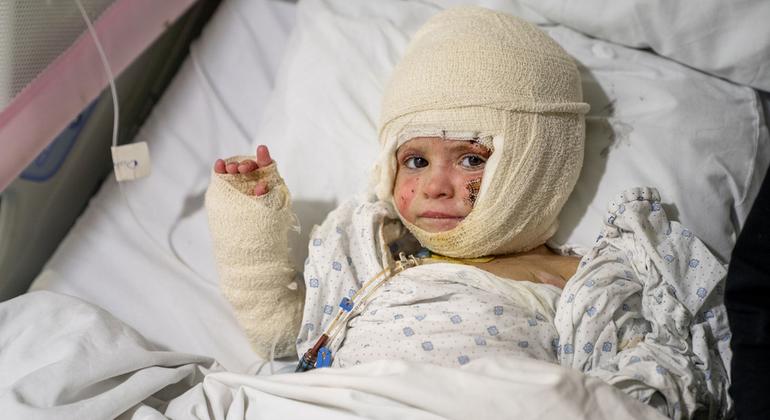A new Israel airstrike hit the border post of Joussieh, causing chaos and devastation as many Lebanese and Syrian people attempted to cross to safety. The violence in the region has reached unprecedented levels, with daily airstrikes and bombings ravaging parts of the country. The humanitarian situation in Lebanon has deteriorated to a point that exceeds the severity of the 2006 war, with thousands of deaths and injuries reported since October 8, 2023.
Filippo Grandi, the head of the UN refugee agency UNHCR, expressed grave concern over the situation in a social media post early Saturday. He mentioned that even fleeing and taking care of those who flee has become difficult and dangerous as the war continues to spread. The ongoing hostilities have resulted in 2,867 deaths and over 13,000 injuries, according to Lebanese authorities and the latest flash update from the UN humanitarian coordination office, OCHA.
Among the casualties, 178 children have been killed and 1,173 injured. Additionally, over 800,000 people are internally displaced, with 52% being female and 48% male. The UN health agency WHO reported 36 attacks on healthcare facilities, resulting in the deaths of 85 health workers and injuries to 51 others between September 17 and October 31, 2024.
The situation has escalated further in recent days, with the Israeli army issuing displacement orders for residents of Baalbek and Nabatieh. Shortly after these orders were issued, airstrikes targeted these locations, along with the first evacuation order for a refugee camp. The destruction of critical infrastructure continues as the conflict escalates, leaving many hospitals overwhelmed and in urgent need of blood donations to address the influx of casualties.
Imran Riza, the Humanitarian Coordinator for Lebanon, condemned the attacks on civilians and infrastructure, calling for an immediate cessation of hostilities to protect vulnerable populations. Meanwhile, UN agencies and the UN Interim Force in Lebanon (UNIFIL) are working tirelessly to support conflict-affected vulnerable populations, providing essential services and supplies to those in need.
The consecutive evacuation orders issued by Israel on October 30 and 31 for Baalbek caused widespread panic and displacement of civilians. Many people were forced to flee towards Zahle and Akkar, spending the night in their vehicles as they searched for safety amidst harsh weather and security conditions. Similar evacuation notices were issued in Nabatieh, Tyre, and Beirut’s southern suburbs, intensifying the crisis even further.
Despite the efforts to provide warnings and support to civilians, the inconsistent issuance of displacement orders ahead of airstrikes leaves many people uncertain and fearful for their safety. The ongoing violence and destruction in Lebanon have created a sense of desperation and helplessness among the population, with many wondering when the cycle of violence will end and peace will be restored to the region.
As the international community continues to monitor the situation in Lebanon and provide humanitarian aid to those affected by the conflict, it is crucial for all parties involved to prioritize the protection of civilians and adhere to international humanitarian law. The indiscriminate targeting of civilians and critical infrastructure must cease to prevent further loss of life and alleviate the suffering of those caught in the crossfire of this devastating conflict.









